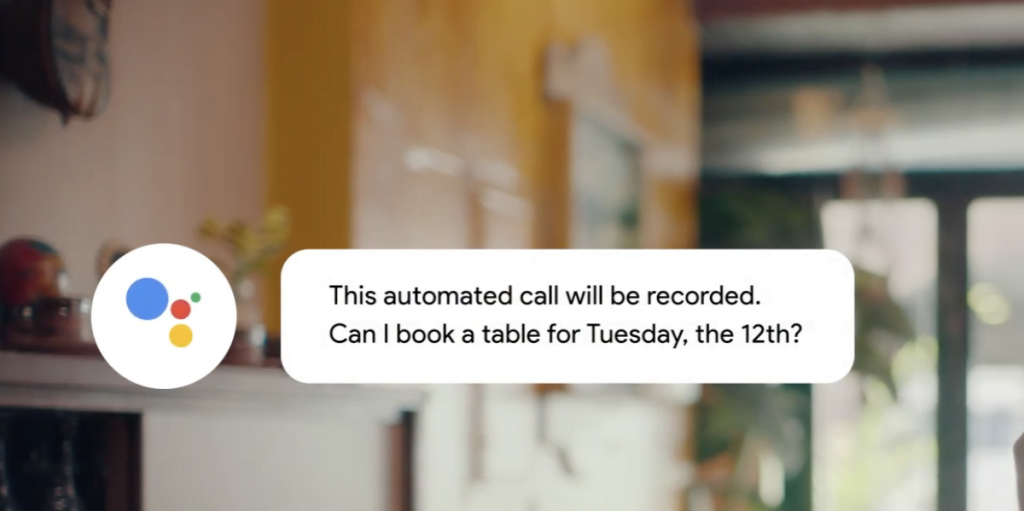Google has begun using Duplex, its AI chat agent that can arrange appointments over the phone, to contact businesses about the status of certain “in-demand” items like toilet paper, hand sanitizer, and cleaning solutions. As reflected in an update to a support webpage and confirmed to VentureBeat by a spokesperson via email, the company is expanding Duplex’s use cases as it looks to help people navigate social distancing and shortages arising from the pandemic.
“To help consumers make more informed decisions about when to leave the house during social distancing, we’re experimenting with ways to surface the availability of critical products [in Google Maps and Search],” the spokesperson said in a statement. Duplex is collecting the info from grocery stores, discount stores, pharmacies, drug stores, convenience stores, and home improvement stores.
The rollout follows a Duplex pilot in New Zealand; a quiet launch in the U.K., Australia, and Canada; and a debut in Spain with support for the Spanish language. It also comes as Google looks to leverage the service to confirm which stores are closed as a result of shelter-in-place orders intended to limit the spread of COVID-19. Back in March, CEO Sundar Pichai said Google would use Duplex “where possible” to contact restaurants and businesses so it can accurately reflect hours, pick-up, and delivery information during the pandemic.
Earlier this week, Google revealed that Duplex has been used to update over half a million business listings to date.
At the beginning of an exchange, Duplex makes it clear the call is automated, and it doesn’t call late at night or early in the morning. In all countries, Duplex informs the person on the other end that they’re being recorded. If business owners or front of house staff respond with “I don’t want to be recorded” or some variation of the phrase, the call is handed off to a human operator on an unrecorded line. (Those operators also annotate the call transcripts used to train Duplex’s algorithms.)
Part of the reason Duplex sounds so natural is that it taps Google’s sophisticated WaveNet audio processing neural network and intelligently inserts “speech disfluencies” — the “ums” and “ahs” people make involuntarily in the course of a conversation.
In 2019, Google brought Duplex to select “devices that can access Search or Maps,” expanding the agent’s availability beyond Pixel phones, iOS devices, and select third-party Android devices. Still, the tech giant appears to be hedging its bets with Assistant on the Web, a relatively new service that uses Duplex technology to handle things like car rentals and movie ticket bookings on the mobile web.
With the ongoing coronavirus pandemic, rollouts and development of Assistant on the Web and Duplex are likely to slow as governments mandate that some businesses remain closed.
Google’s Duplex efforts around the pandemic dovetail with its wider response. This month, the company began showing local store information including product availability, locations, and options such as curbside pickup or delivery within the Search Shopping tab in countries where it’s available. And in May, Google started testing a curbside pickup badge in Local Inventory Ads to give added visibility to retailers now offering the option.
